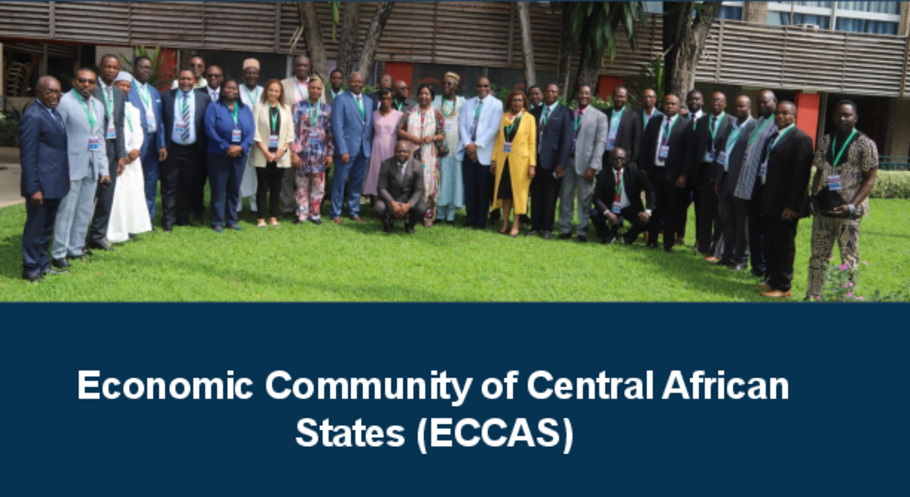
To prepare the next post-Malabo plan, the ECCAS Regional Economic Community (REC), in partnership with AU, and the Feed the Future Policy LINK Program organized regional stakeholder consultations for the Central Africa region.
The objectives of stakeholder consultations are as follows:
- Facilitate outreach, awareness, socialization, momentum building, and political buy-in for the post-Malabo process and issues.
- Facilitate stakeholder reflections and learning on the last 20 years of CAADP to inform the future.
- Enable stakeholders to provide input into and inform the post-Malabo agenda.
- Have a wider perspective and begin building consensus on key issues and technical options.
- Develop a synthesis report to inform the final drafting of the post-Malabo agenda.
The participants at the consultation were: the CAADP focal points and government representatives of different countries, as well as private sector and non-state actor representatives from the seven ECCAS Member States. We had representatives from Cameroon, Gabon, Chad, CAR, Equatorial Guinea, the Republic of São Tomé and Principe, and the Republic of Congo. We also had representatives of ECCAS, the African Union Commission (AUC), the NEPAD/African Union Development Agency (AUDA), and the Feed the Future Policy LINK Program, in addition to a team of facilitators. Four countries did not participate in the consultation: Angola and the DR Congo participated in the Southern African Development Community (SADC) consultation, while Burundi and Rwanda attended the Eastern Africa Community (EAC) meeting.
ECCAS participants raised critical questions and challenges hindering the CAADP program and proposed solutions for the post-Malabo agenda. These discussions were informed by the framing of key issues and presentation on the country context, issues, and strategic priorities.
In the ECCAS region, the arid zone is more competitive in the production of meat and dairy products; this should be a strategic agri-food product for the region because of the comparative advantage it represents.
The rainforest region, which is the cereals zone, is competitive for cassava, yam, maize, and rice. Selecting strategic products including comparative advantages can facilitate regional integration through the trade of agricultural goods and services. Equal support and investment should be accorded to crop and livestock farming. More investment and efforts are required in the livestock sector through the improvement of livestock management, development of livestock infrastructure, and value addition and revalorization/commercialization of livestock products (e.g., skin) to maximize value and return.
The ECCAS region has not recorded sufficient budgetary allocation and investment in agriculture like other sectors. It is therefore critical to implement strategies to strengthen strategic partnerships and mobilize investment from the private sector and development partners to bridge the funding shortfall from the public sector. Private sector partnerships are not only critical in mobilizing funds but also technical expertise. At the same time, the government can provide subsidies, reduce taxes, lower interest rates, and otherwise improve the enabling environment for private sector investment.
The nexus between climate change, governance, and insecurity in ECCAS requires urgent attention to ensure stability for agricultural production, especially in livestock farming areas where drought-related conflicts have arisen. As such, the region must implement a comprehensive climate mitigation and adaptation strategy to enhance livelihood resilience.
Share: